The pros and cons of social media
Building connections, revolutionizing news and expanding horizons vs. concerns around mental health, fake news and privacy
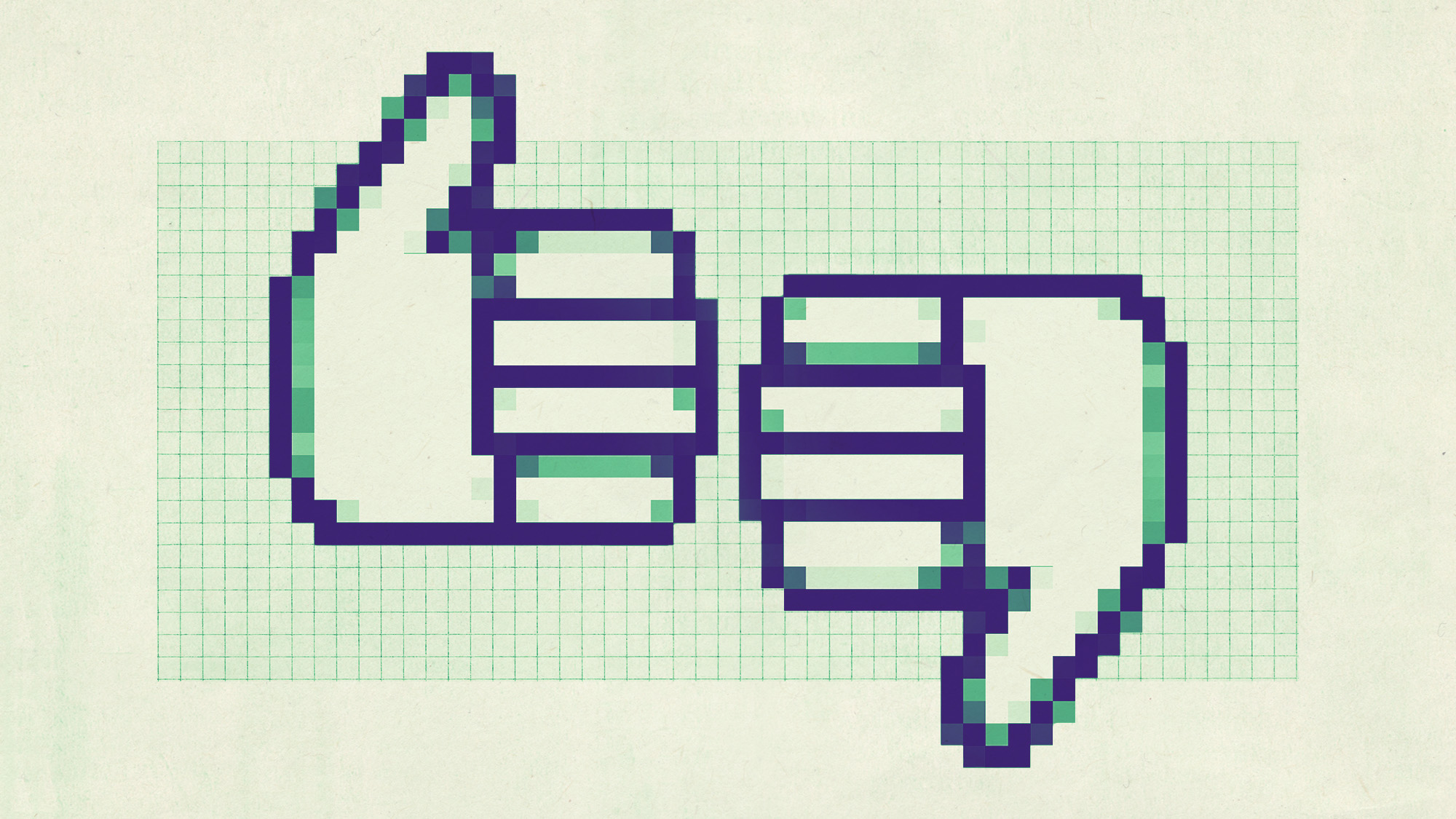
A free daily email with the biggest news stories of the day – and the best features from TheWeek.com
You are now subscribed
Your newsletter sign-up was successful
Social media has grown from its infancy in the early 2000s into a ubiquitous part of most people's lives. What began as a way for people to connect with each other has evolved into a variety of platforms where people can get news, share ideas and even make a living. But from the beginnings of Facebook, YouTube and Twitter to the second wave of platforms like Instagram, Snapchat and TikTok, people have had differing opinions on the true nature of social media.
Pro: maintain connections
One of the biggest positives of social media is the way it brings people together. These sites "play an important role in the establishment of friendships and the everyday back and forth of peer relationships," said the Pew Research Center. The term "social media" provides a clue to the initial purpose of the platform: building social interactions.
As new platforms developed, so did the way in which people used them. The shift was "almost invisible, but it had enormous consequences," said The Atlantic. "Instead of facilitating the modest use of existing connections — largely for offline life (to organize a birthday party, say) — social software turned those connections into a latent broadcast channel," and all at once, "billions of people saw themselves as celebrities, pundits and tastemakers."
The Week
Escape your echo chamber. Get the facts behind the news, plus analysis from multiple perspectives.

Sign up for The Week's Free Newsletters
From our morning news briefing to a weekly Good News Newsletter, get the best of The Week delivered directly to your inbox.
From our morning news briefing to a weekly Good News Newsletter, get the best of The Week delivered directly to your inbox.
Con: depression and anxiety
The impact on mental health, especially among children and adolescents, has long dominated debate around the use of social media. Numerous studies have found links between heavy social media use at a young age and negative self-esteem, body dysmorphia and higher psychological distress. This is especially true among girls, with the UK government moving to introduce the Online Safety Act in 2022 to safeguard children from the effects of social media-triggered depression. In the U.S., Congress has also introduced the Kids Online Safety Act, which would force social media platforms to "exercise reasonable care" when creating features meant for children.
Experts have raised concerns about how social media use activates the reward circuits in the brain, which can cause addiction, said USA Today; those with a history of trauma are particularly vulnerable. At least 15 children under 13 who tried to participate in the TikTok viral "blackout challenge" died, said Vox. "While pursuing the dream that TikTok dangled in front of them — becoming an overnight superstar — many more have become burnt out, disillusioned or otherwise hurt."
The risks to mental health led former U.S. Surgeon General Vivek H. Murthy to call for a "surgeon general's warning label on social media platforms" in an op-ed for The New York Times. Platforms like Facebook, Instagram, TikTok and X can create "significant mental health harms for adolescents," said Murthy, which is why Congress should require them to issue warnings to protect America's young people "from online harassment, abuse and exploitation" that are amplified by algorithmic feeds.
Pro: changed politics and news
For all the talk of social media as a toxic cesspit, "it has also encouraged young people to vote, to engage in local politics, and to organize — sometimes against TikTok itself," said Vox. It has revolutionized the way people receive information, forever democratizing news. It has changed politics (for good or bad, depending on your outlook) by ushering in Brexit and Donald Trump but also by helping those living in repressive regimes communicate and mobilize. The Arab Spring was made possible by social media and it is the front line of the communication battle raging in Russia and Ukraine today.
A free daily email with the biggest news stories of the day – and the best features from TheWeek.com
The importance of social media in politics and news was further solidified by the prominent role it played in the most recent U.S. presidential election. Despite the fact that she lost, former Vice President Kamala Harris' campaign showed a deft hand in navigating the internet's social sphere, adopting many of the memes made about her and using them advantageously. Podcasters, streamers and influencers also emerged as the faces of the digital news cycle last year; this cohort of digital entertainers became a "source of news for a significant number of Americans, especially when it comes to politics," said NPR.
Con: cognitive overload
"Social media can be mentally draining," said Matthew Pittman, an assistant professor of advertising and public relations at the University of Tennessee, in The Conversation. Citing recent experiments on how social media affects behavior, he said: "You are more likely to be influenced by a high number of likes on posts — even to the point of clicking on ads for products you don't need or want." Yet the effect of "cognitive overload" can result in more than just buying things you do not need.
The endless access to information is perhaps of greatest concern for children, said Adam Brown, a clinical assistant professor in the department of child and adolescent psychiatry at NYU Grossman School of Medicine, to USA Today. As a 2023 study published in JAMA Pediatrics shows, checking social media platforms like Facebook and Instagram too often can even affect how the brain develops in early adolescence, with students who checked social media habitually displaying differences in brain development related to emotions, motivation and cognitive control.
The increasing popularity of short-form content, inspired by the success of TikTok, has also led to concerns about the attention span of children and teenagers. The so-called TikTok brain phenomenon is built around the constant exposure to dopamine-spiking short videos, which have slowly become the norm across other platforms, including YouTube shorts. And given the large swath of content available on social media, the "exposure to a wide range of emotions, from joy and inspiration to anger and sadness, all within a short span, can be mentally taxing," said Calm.
Pro: provides education
It is important to stress the educational and entertainment aspects of social media, said Fox News. "A lot of people end up discovering new musicians, styles of clothing they want to try out, or even facts about the world that they didn't know before." Providing a vital window to the outside world during the Covid-19 pandemic, it has inspired people "to make fun iced coffee drinks, to pursue careers in arts and entertainment, to romanticize their lives, to feel more positively about their own bodies," said Vox.
There are many ways children can learn using social media. This ranges from how "students interact with content to how educators design and share their learning materials," said the British School of Barcelona. Social media can also facilitate "collaborative learning" by letting kids "work together on projects and assignments at anytime and from anywhere," as opposed to being limited to school hours.
Con: privacy concerns
Fake news, otherwise known as disinformation, has been around in one form or another for centuries. Yet the rise in social media has turbo-charged it. The impact of social media "echo-chambers" and online "trolls" can be seen in the stark polarization of societies around the world and the rise in populist politicians, which have come to define the age we live in. Added to this is a growing concern over privacy and security. The Cambridge Analytica scandal of 2018 revealed how data from platforms such as Facebook was being manipulated for political gain by third parties.
Concerns about TikTok's links to the Chinese state resulted in a law temporarily banning the platform the day before Trump was inaugurated for the second time. The new president swiftly extended the deadline for the law to go into effect with an executive order, and recently suggested he would consider doing so again. Under the new timeline set by Trump, TikTok's China-based parent company, ByteDance, was given "75 days beyond the initial January deadline to divest from the popular platform amid national security concerns," said The Hill. Longstanding negotiations continued until October 2025, when the U.S. and China announced a deal for TikTok's sale, though no details have yet been announced.
Justin Klawans has worked as a staff writer at The Week since 2022. He began his career covering local news before joining Newsweek as a breaking news reporter, where he wrote about politics, national and global affairs, business, crime, sports, film, television and other news. Justin has also freelanced for outlets including Collider and United Press International.
-
 Nuuk becomes ground zero for Greenland’s diplomatic straits
Nuuk becomes ground zero for Greenland’s diplomatic straitsIN THE SPOTLIGHT A flurry of new consular activity in the remote Danish protectorate shows how important Greenland has become to Europeans’ anxiety about American imperialism
-
 ‘This is something that happens all too often’
‘This is something that happens all too often’Instant Opinion Opinion, comment and editorials of the day
-
 House votes to end Trump’s Canada tariffs
House votes to end Trump’s Canada tariffsSpeed Read Six Republicans joined with Democrats to repeal the president’s tariffs
-
 Why X could face UK ban over Grok deepfake nudes
Why X could face UK ban over Grok deepfake nudesThe Explainer Ofcom is investigating whether Elon Musk’s AI chatbot breached Online Safety Act
-
 What are the impartiality rules for BBC presenters?
What are the impartiality rules for BBC presenters?The Explainer News presenters and hosts of 'flagship programmes' must adhere to tougher guidelines than other staff and freelancers
-
 Facebook: Sarah Wynn-Williams' shocking exposé
Facebook: Sarah Wynn-Williams' shocking exposéTalking Point Former executive's tell-all memoir of life behind the scenes at Meta 'makes for damning reading'
-
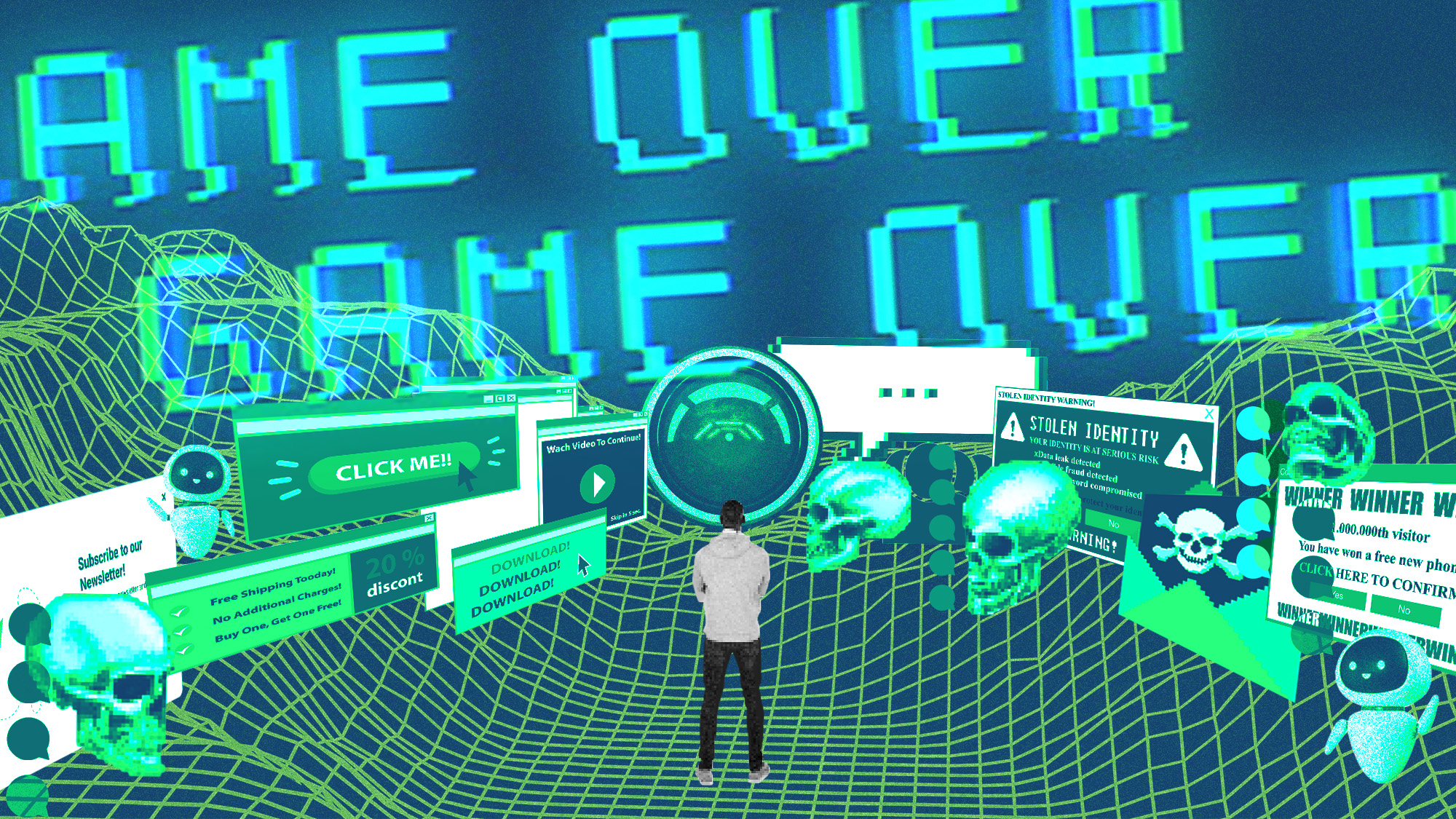 What is the dead internet theory?
What is the dead internet theory?The Explainer Reality has 'begun to mirror' the conspiracy that the vast majority of internet activity is generated by bots
-
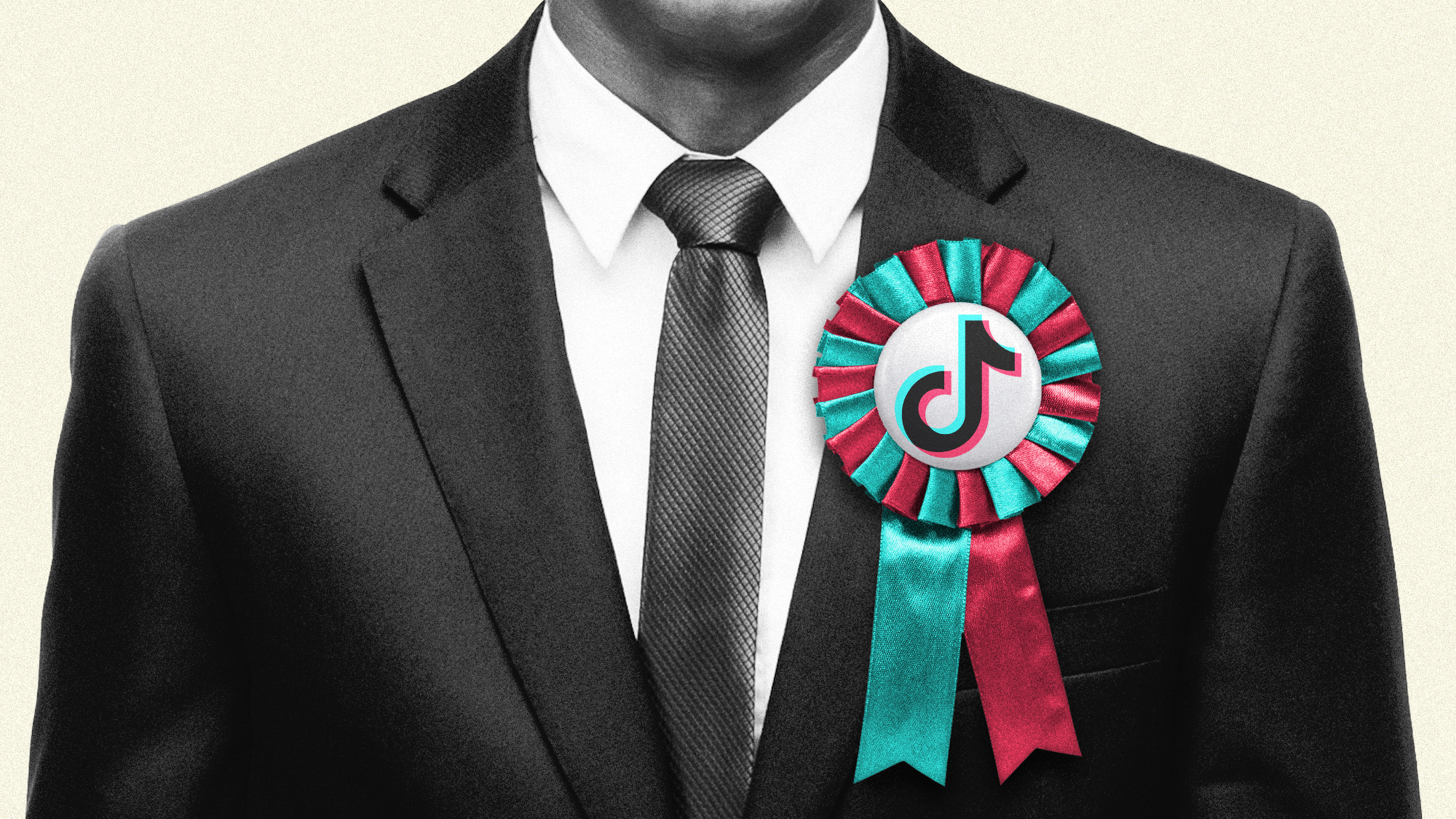 The UK's first TikTok election
The UK's first TikTok electionThe Explainer Labour and Conservatives launch on the video-sharing app deemed so valuable by US Democrats in reaching young voters
-
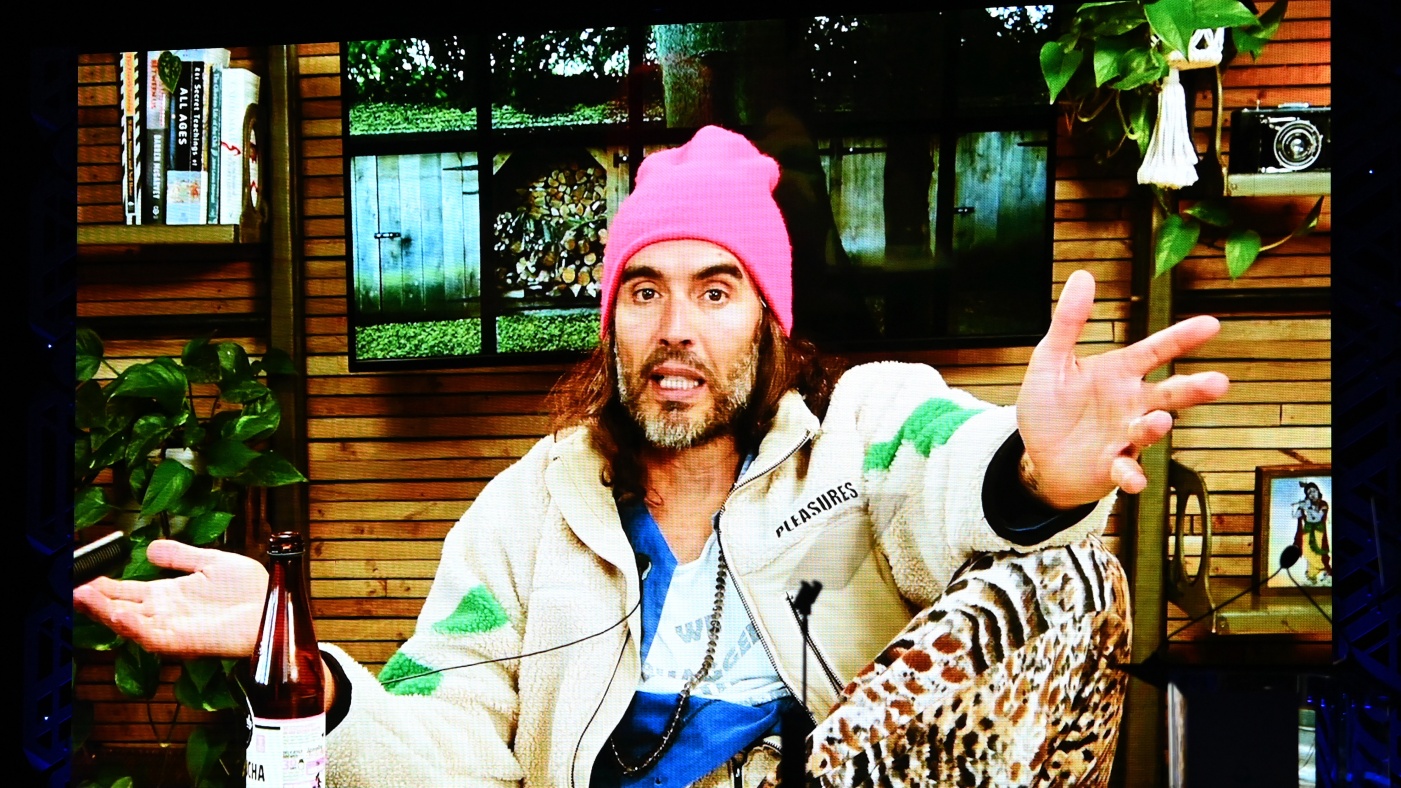 How Russell Brand built up his online following
How Russell Brand built up his online followingThe Explainer The former comedian has tens of millions of followers across his social media platforms
-
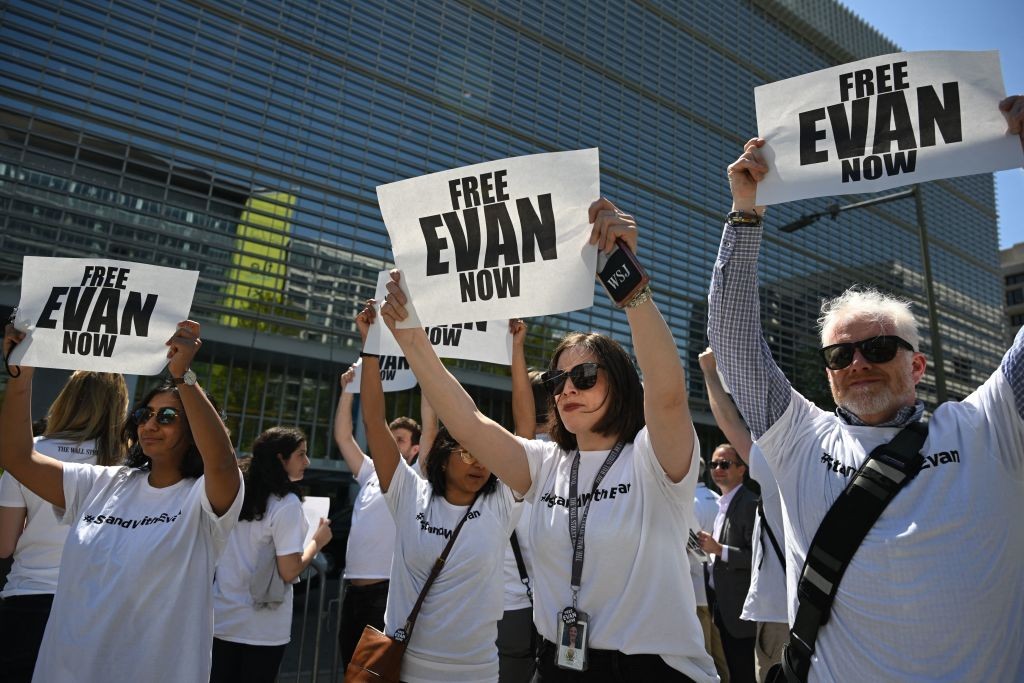 Which countries have the most and least press freedom?
Which countries have the most and least press freedom?feature A disturbing new report underlines scale of attack on independent media across the globe
-
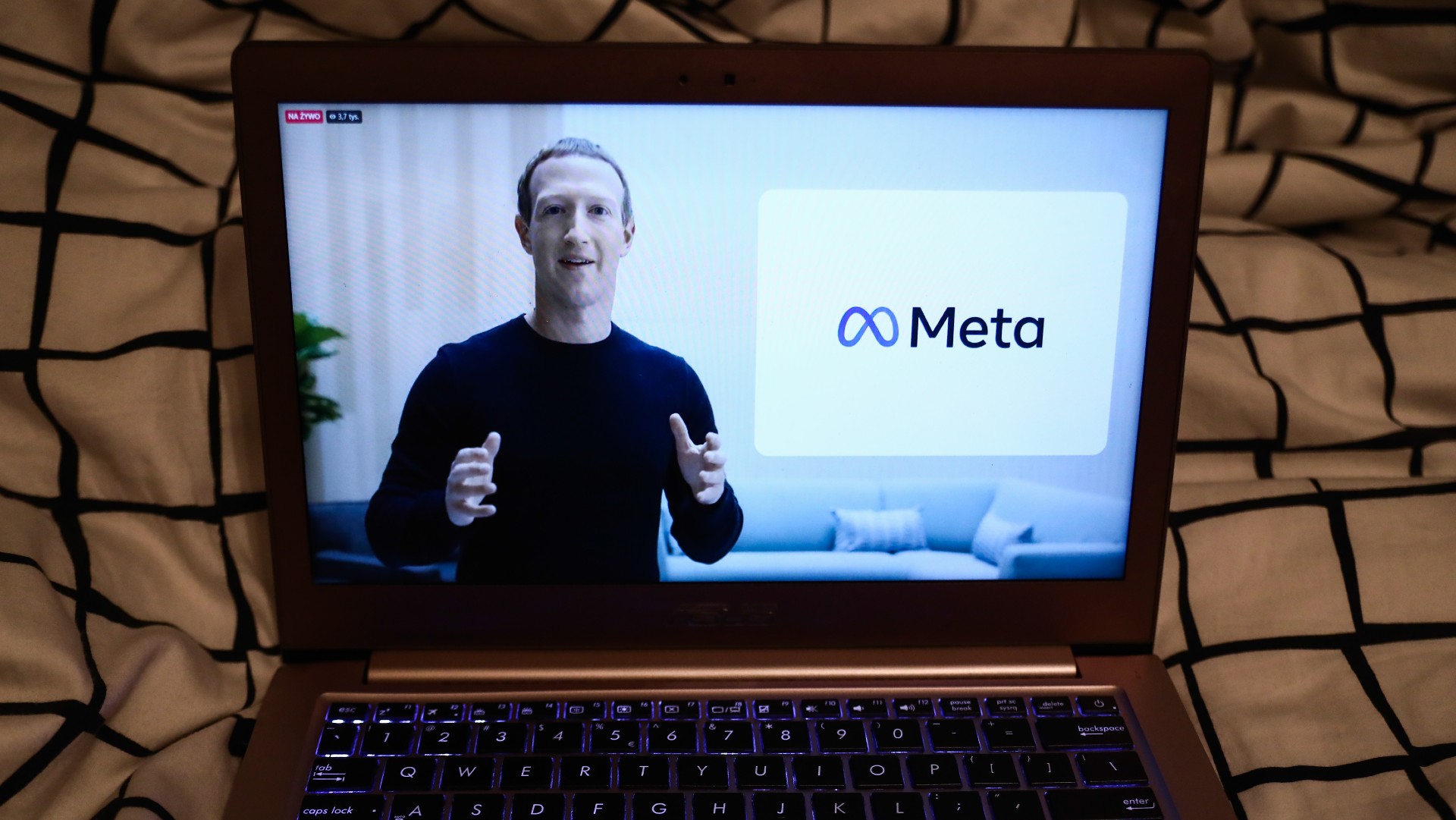 Should young teenagers be allowed in the metaverse?
Should young teenagers be allowed in the metaverse?Talking Point Children’s rights advocates urge Facebook parent company to block teens over safety concerns


